Sunday mid-day meets seniors in the city to hear what Christmas was like in their youth
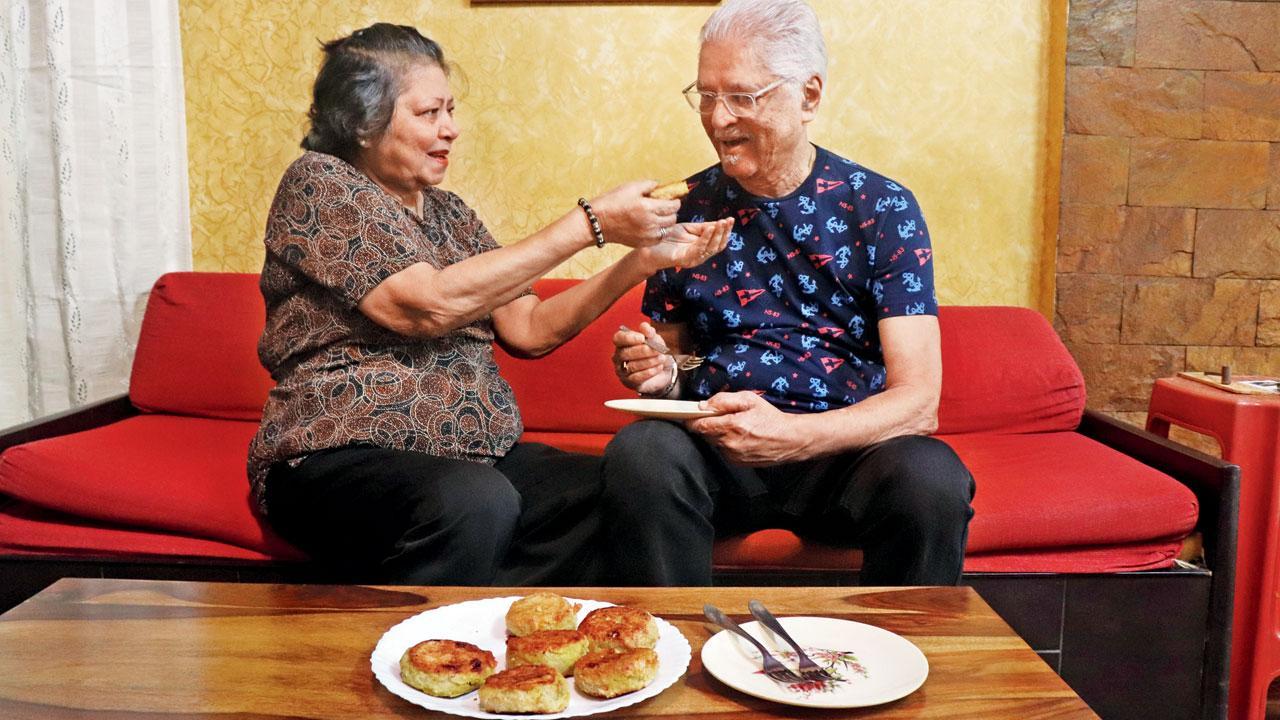
Octogenarian couple Austin and Cecilia have spent around 60 Christmases together
On a bright winter afternoon, 93-year-old Beryl Cardoz awaits Team mid-day in her Bandra apartment. Photos of three generations of her family, spread worldwide, adorn the grey walls, and white lace curtains attempt to sheathe little pots of green that Cardoz is nurturing. “It’s a small place,” she says, welcoming us with a cheery smile.
We take a seat at the circular dining table covered with a red printed tablecloth on which she’s laid out the bibic, a Goan layered dessert made with eggs, coconut milk, ghee and flour, ready for us to shoot. “I haven’t made it; I don’t cook anymore, but it’s my recipe,” she tells us proudly. “We used to make it in circular pans when they were made on the stove... before ovens came in. I learnt it from my grandmother, who would cook each of the 11 layers with coals on top. It required patience,” she recalls.
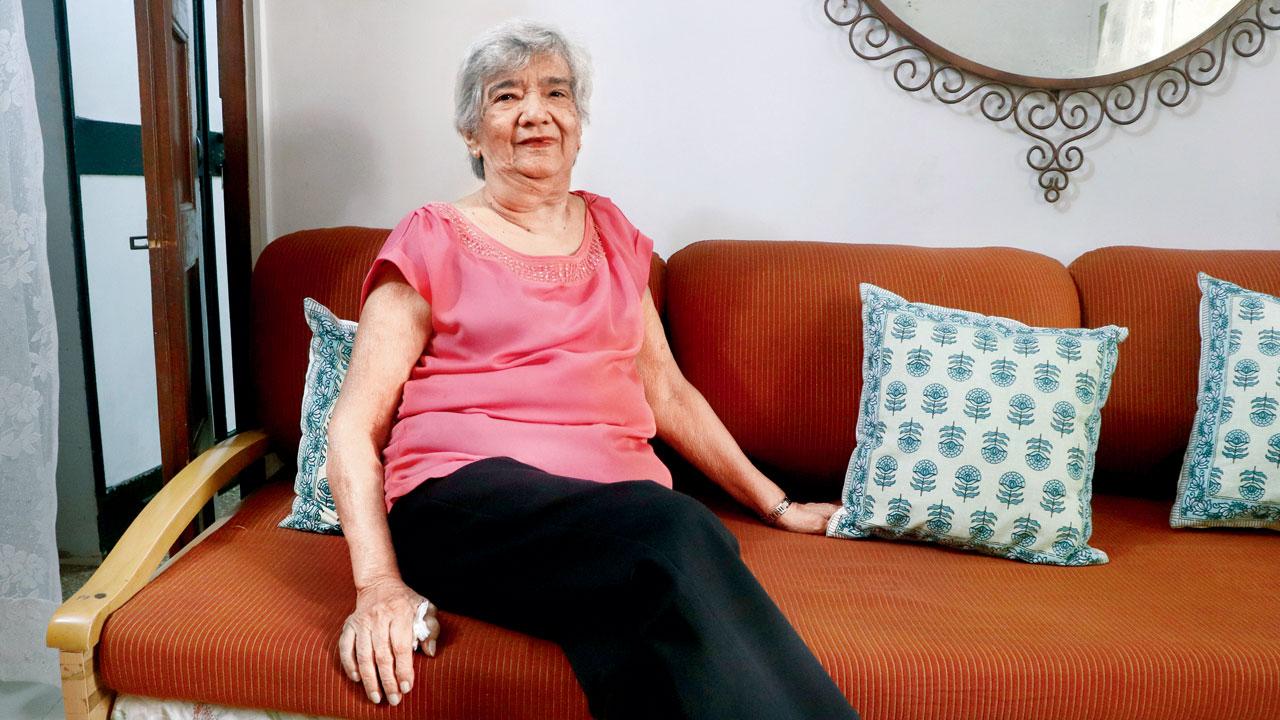 93-year-old Bandra-based Goan catholic Beryl Cardoz is looking forward to the Christmas lunch with her grandkids. Pics/Anurag Ahire
93-year-old Bandra-based Goan catholic Beryl Cardoz is looking forward to the Christmas lunch with her grandkids. Pics/Anurag Ahire
Born in Iran and raised in Hubli, Cardoz was 17 when she moved to Mumbai to study and work. “It was August 14, 1947,” she remembers, “a day before India got its independence, and there was such a spirited feeling in the air. We come from a family where education is of prime importance, and in those days, many would come to Bombay for better options. Most of my cousins were teachers, but my aunt, who worked in the telephone company, said I could come to the city and be something else. I did a shorthand and typing secretary’s course from Colaba, and worked at Macmillan Publishers for almost seven years until I got married.
My husband was a scratchboard artist, one of the best in India, and he worked as art director for Bensons for most of his life,” When her youngest son Brett turned seven, she joined Air India, followed by Centaur Hotel at the airport as project manager and then heading the housekeeping department as newer hotels opened across the country, handling important events. “It was fun meeting people—[Brazilian footballer] Pelé came there once, and the [Indian] cricket team was there another time. My daughter has photos with captain Tony Greg and the England cricket team in 1977.”
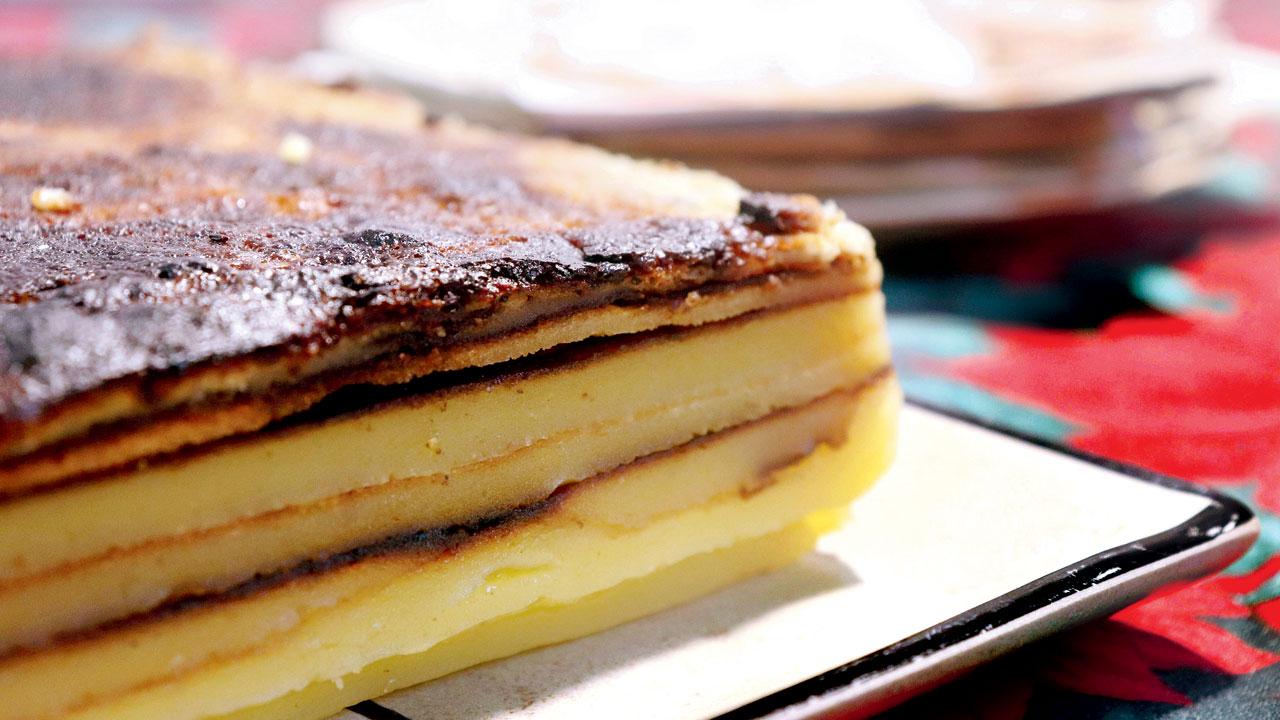
Retired at 58, Cardoz feels she had a good life. During Christmas at the hotel, she’d put up the best decorations and involve carol singers, taking the holiday spirit from home to work. “We used to make kulkuls, jam tarts, and date rolls,” she says. “Cakes were a must, as were marzipans and milk creams stored in big containers. Bibic was my speciality. When you are young, and your mother and grandmother make it, you are not bothered; it’s only when you start a family and begin making it that it becomes your thing. I had an oven from abroad that heated from the top too, and that’s how we could make bibic in the oven. Otherwise, it gets burnt,” Cardoz remembers her days at Virendra, a large society in Bandra across the St Andrew’s church, with 42 flats where everyone would sing carols together. There was a Christmas tree and party for children under 14 in the compound as they were not allowed at the party for adults upstairs.
“My sister would come from England, and we’d put up a Christmas tree at home and there was so much fun and laughter with everyone around,” she says. “It was a whole different experience. The Christmas cake was a must—I started making it later, and once you get into baking cakes, there is no way out. My daughter, too, has made lots of traditional cakes for people. She was a Bandra girl. We used to make it simple... now people add creams and frostings... the true essence of a Christmas cake is lost. I am glad my daughter-in-law, Barkha, also makes them in the US. It makes me happy, at least my children have carried on the cake tradition.”
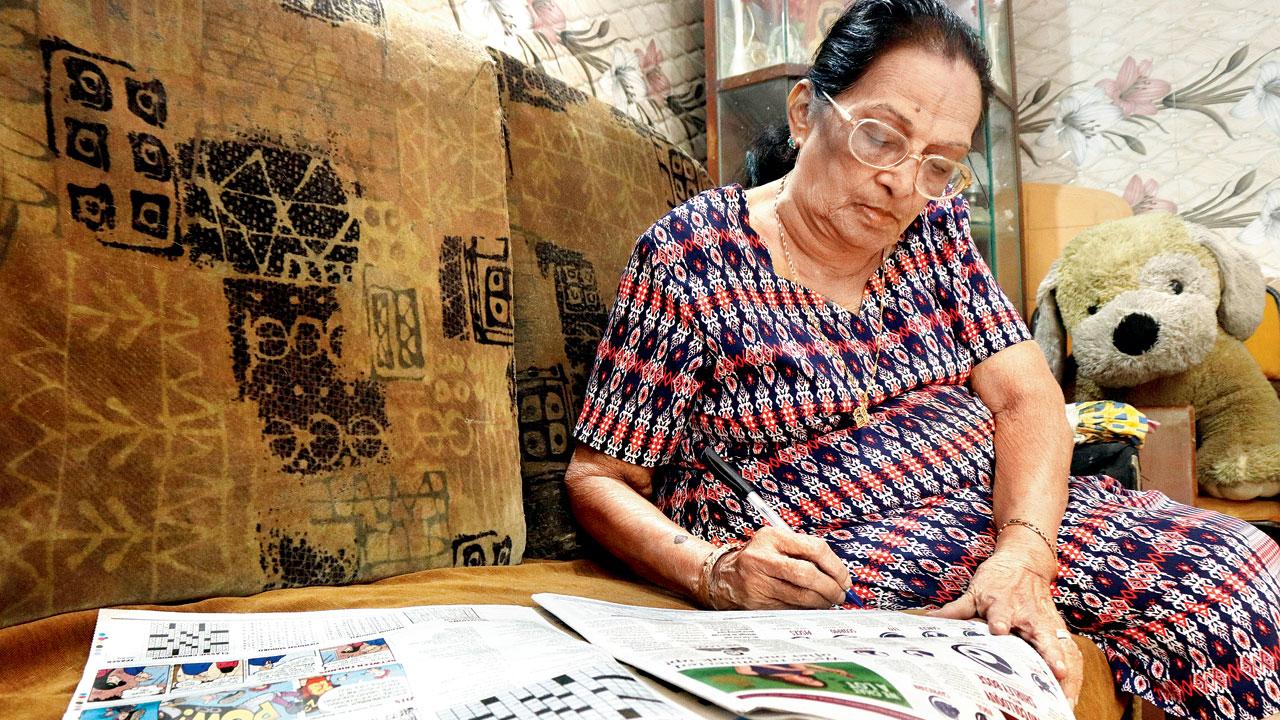
Hilda Pereira’s favourite pastime is to solve mid day puzzles. For Christmas, her pork sorpotel is everyone’s favourite
As we nibble the slivers of bebic she has neatly cut for us, Cardoz brings out her recipe book. It is a treasure trove of dishes she has collected, made, and mastered over the years. “All my masalas are here and so are the improvised versions of the recipes I have made. I have given everyone a copy of the book and kept the original,” she smiles.
Looking at the photos on the wall, Cardoz gets a little teary-eyed. “That’s all we’ve got now,” she tells us, wiping the corners of her eyes with a handkerchief. This year, her grandson, the late chef Floyd Cardoz’s youngest son, Justin, and his mother Barkha will come down from New York to spend Christmas with her. “I am looking forward to that,” she says. “We’ll have pork vindaloo, pork sorpotel, a tiger prawn dish that my son Brett and his wife Bev are getting over, there’s sannas and roast duck, salad and sides from OPedro and a chocolate strawberry cake from Maska bakery,” she says with a smile as we wave her goodbye but not before noting down her recipe for bebic.
It takes a village...
After passing through a labyrinth of bylanes dotted with altars, we reached 86-year-old Hilda Pereira’s home in Olleria, an east Indian settlement at Marol that is probably as old or older than the St John’s the Evangelist Church, originally built 400 years ago. This is where Pereira was born, and her father gifted the house to her four decades ago. Pereira has just finished the mid-day word search, a daily ritual that she enjoys and keeps her mind sharp in her eighth decade. The room we were sitting in was her mother’s kitchen. Pereira points to where the stove used to be and says, “She used to do the stirring for dal sweets—it’s a tiring process. It’s the same with guava cheese and dodol (a sweet made with jaggery and rice flour), both favourites. We’d then lay the mixture out in large trays and cut them into diamonds or squares.”
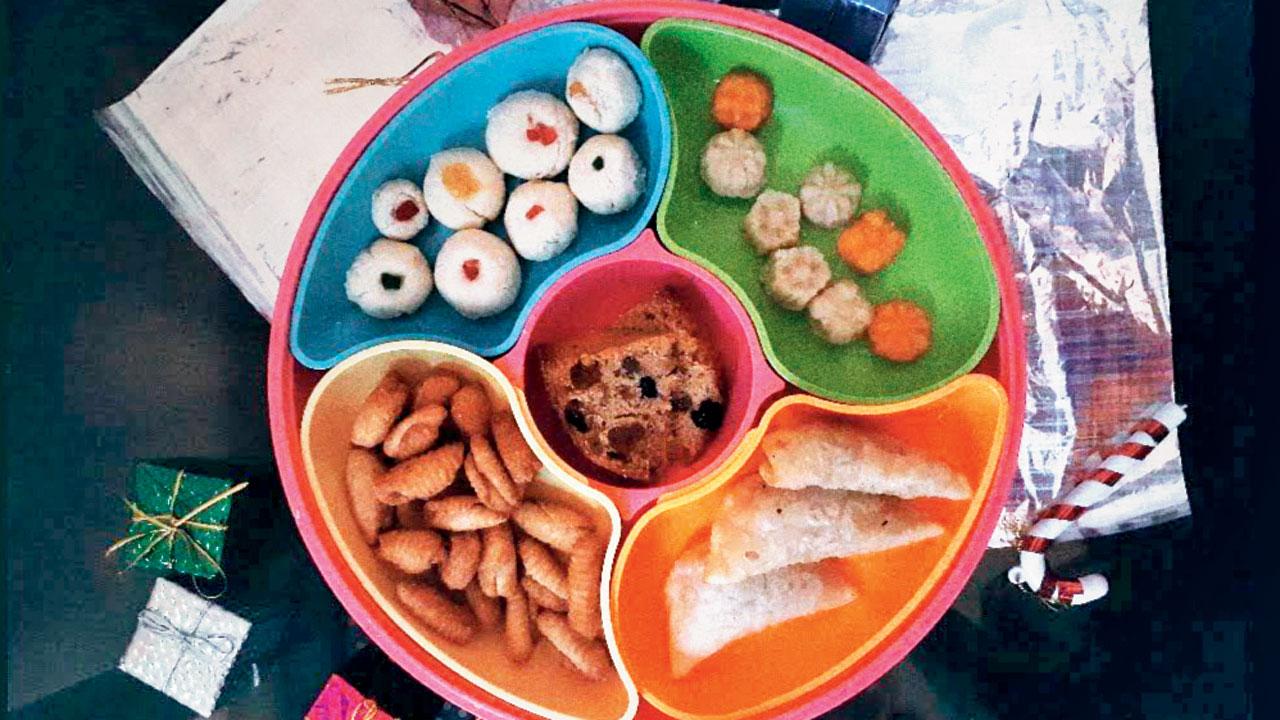
The charm of Christmas lies in making traditional homemade sweets, along with the family and sharing it with neighbours
Days before Christmas, Pereira, a teacher at Holy Family School for 43 years, would help neighbours prepare nevris and other sweets, and distribute them in the community in the morning. “We call it koswad; it’s like Diwali faraal,” she informs us. “Now only a few families make it, mainly those with an older person at home. Others order it, that too just enough for their homes. There is no sharing anymore. We’d even go carol singing from home to home in a group. Even the midnight mass isn’t at midnight anymore; it happens at 8.30 pm. Back in the day, we’d come home and have cake, coffee and rum. We make wine at home and have previous years’ batch.”
Pereira remembers going to her cousin’s terrace for dances. “[That’s why] No one wants to give the space for re-development. There is a sense of belonging and unity here,” she says of her neighbourhood. Christmas lunches meant pork sorpotel or vindaloo, along with other meat dishes. For now, she’s shared the recipe for East Indian sorpotel, passed down through generations.
Carrying Jesus in your heart
In September 2024, they’ll celebrate their 60th wedding anniversary. For Kalina residents Austin and Cecelia Pinto, it’s been a beautiful ride together since they first met in 1962 at a pharmaceutical company where they both worked.
Cecelia, fondly called Bullu, is a East Indian, originally from Bandra, and remembers watching plays at the Great Indian Peninsula Institute opposite Carmel Convent School. “The place is now a restaurant,” she says dismissingly. Austin, a Mangalorean, who lived in Byculla, used to go for midnight mass at Gloria Church and then head to a coffee party at a friend’s place. Christmas dances were at Byculla Railway Mechanics Ground (now closed) or at Dr Antonio Da Silva [High school] at Dadar, a favourite after they got married. Catholic and Bandra Gymkhanas were other favoured ones they’d go to in groups. “We jived and did the foxtrot—it was all so classic and beautiful,” says Cecelia.
Lunch at home would be potato chops, a pork dish, and mutton tongue roast, with fluffy sannas, ordered in. “I started cooking the Mangalorean way after I got married,” says Cecelia. “Before that, she couldn’t even fry an egg,” smiles Austin. “I made everything but the sannas just wasn’t my thing,” she says, adding, “I made cakes, marzipans, milk cream, and date rolls but not dal sweet and guava cheese—it required too much stirring. My three children helped with kulkuls and nevris. Before the new year, my sweets would get over,” she says proudly.
Austin and Cecelia moved to Kolivery near the Our Lady Of Egypt Church before they shifted to Arvind Nagar, where they have been living for close to 50 years now. “Things were quite expensive here,” she remembers, “We had to bring everything from outside, but I remember Kalina from when it was a paddy field; I was a little girl who had come in her daddy’s red classic car for his cousin’s wedding. East Indian wedding celebrations last seven days. There were stables all around. My father was a municipal councillor and little kids would run behind his car.”
Austin tells us how they’d got to the church ground for mass every year. “Now, we can barely walk,” he says grimly. “I miss going out at any time to meet friends. I also miss the days leading to Christmas when we would get into prep mode. We used to make sweets as a family; now we go to the shop and buy. It’s not the same anymore,” he adds.
For years, Cecilia would make the Old Man out of hay to burn at New Year‘s eve, dressed in Austin’s old clothes. This Goan tradition is replicated throughout the country—it represents the sorrows of the year gone by to be burned away. The entire building would do this, and then party on the terrace till wee hours.
Austin concludes with, “It was simple—stars and cribs were made of paper and hay, hymns were practised till our throats got sore, old decorations were put out with new fervour, and the Lord was the centre of it all. Maybe if we try it again that way, Christmas might be the same after all.”
Cecelia’s potato chops
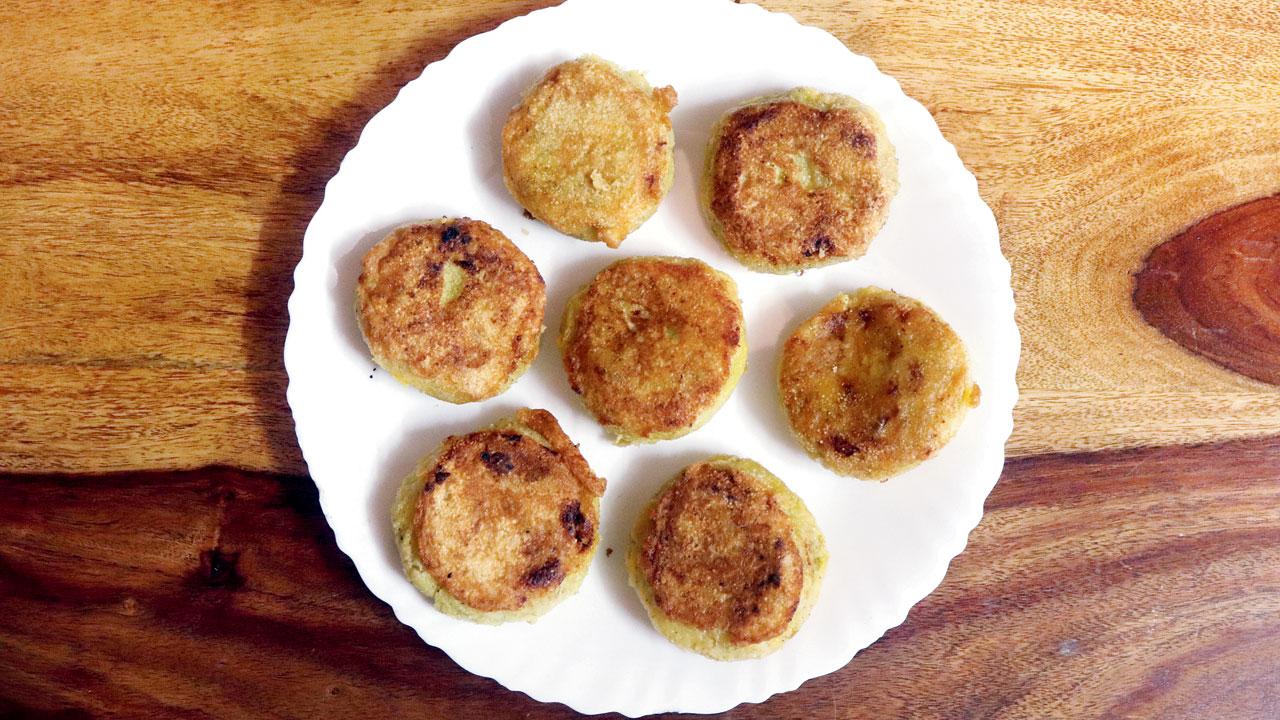
Ingredients
1/2 kg potatoes, boiled, peeled and mashed
1 egg
1/2 cup bread crumbs
Oil for frying
For stuffing
1/2 kg meat
2 sprigs of pudina
2 green chillies
1 1/2 tsp ginger-garlic paste
2 medium onions
50 gms carrots
1/2 tsp chilli powder
1 1/2 tsp coriander powder
1/2 tsp garam masala
1/2 tsp jeera powder
A pinch of kasuri methi
A pinch of saffron powder
1 tsp vinegar
Oil
Method
Heat oil, fry mince and keep aside. To the same pan, add more oil, chopped onions, chillies and ginger garlic paste. Sauté for a few minutes.
Add finely chopped mint leaves, garam masala powder, chilli powder, and a pinch of saffron powder. Cook well until the raw smell of the masalas is gone.
Add the mince and fry for some time. Lastly, add coriander leaves, kasuri methi and water and little vinegar. Cook well until the meat is dry. Allow it to cool down completely
Take mashed potatoes in palm of hand and form a cup. Spoon in a tablespoon of the cooked mince mixture. Close to make patties. Dip in egg, roll in bread crumbs and shallow fry. Serve piping hot.
Beryl’s bibic
Ingredients
900 gms maida
20 egg yolks
Milk from two coconuts
900 gms sugar
1/2 tsp nutmeg
Method
Melt sugar and flour, and pour in the coconut milk. Mix till sugar dissolves. Strain and add nutmeg. Add yolks and mix well. Bake in layers with top heating, keeping a close watch on each layer.
Hilda’s sorpotel
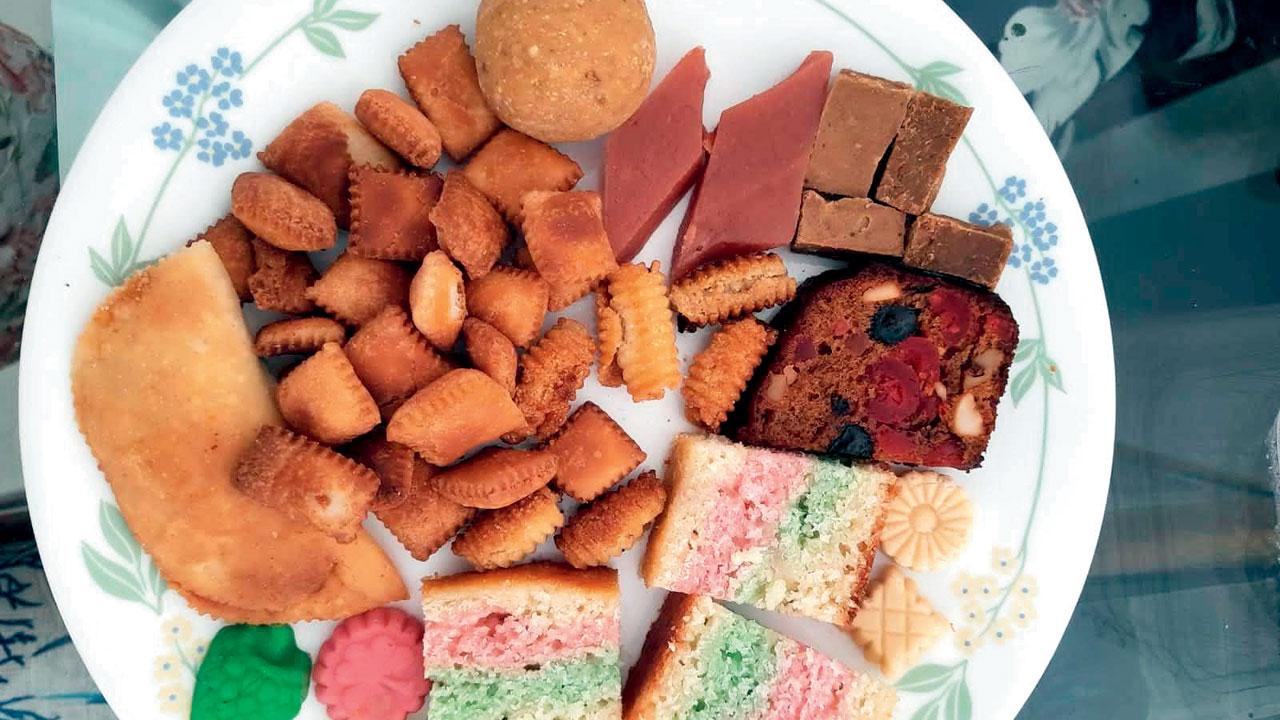
Ingredients
1 kg boneless pork
1/2 kg pork liver
100 gms ginger, julienned
150 gms garlic julienned
100 gms green chillies
3 tbsp East Indian bottle masala
1/2 cup brown vinegar
Salt to taste
Method
Wash the meat, apply salt and water, and cook in a pressure cooker till the meat is 80 to 90 per cent done. Cut into small cubes, fry in a little oil, and keep aside. Fry the garlic and ginger, add the fried meat and bottle masala and stir fry. Add the stock from the pressure cooker, vinegar and green chillies. Add salt and simmer for 15 minutes.
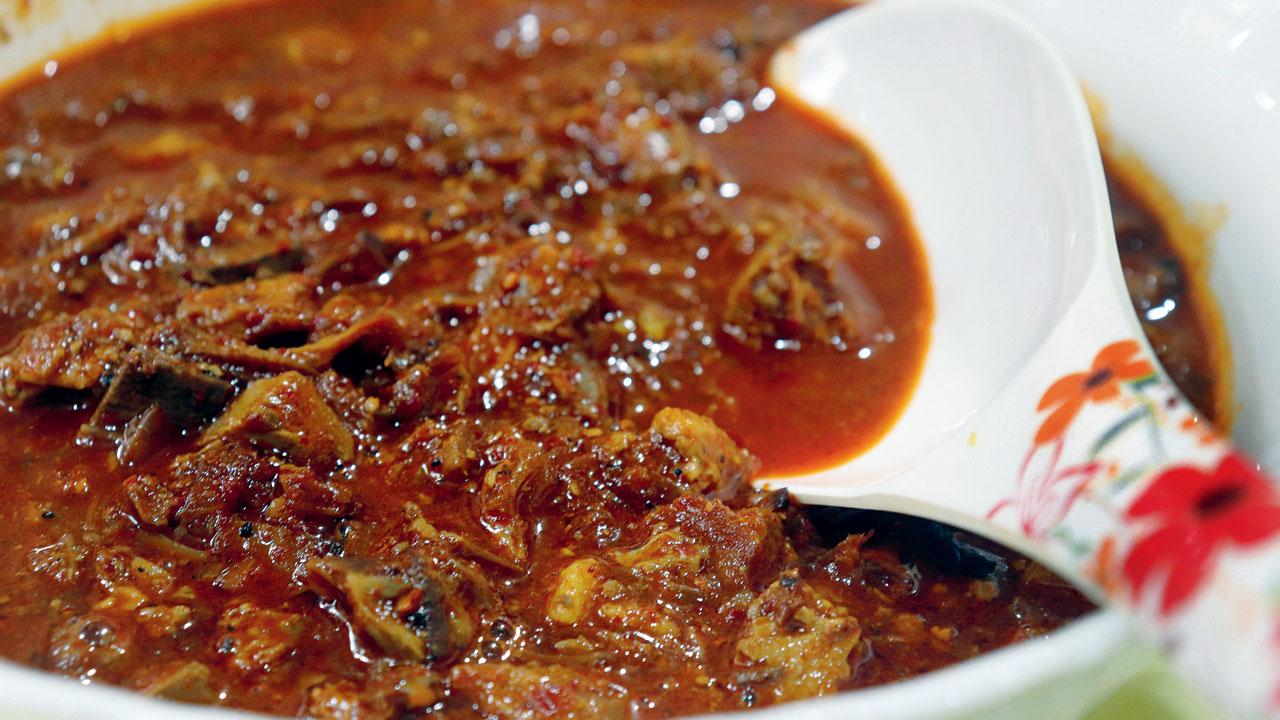
Koswad is a set of festive sweets and snacks made and exchanged during Christmas. Ranging from kulkuls and nevris, to Christmas cakes, marzipan, and others, the term is derived from the Indo-Portuguese word consoada which refers to the dinner served on Christmas eve, synonymous with the spirit of sharing. It was absorbed by the Bombay East Indian Catholics into their native Maharashtrian Konkani dialects.
 Subscribe today by clicking the link and stay updated with the latest news!" Click here!
Subscribe today by clicking the link and stay updated with the latest news!" Click here!








